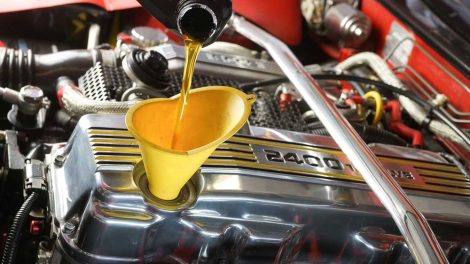Automobile oiling plays a crucial part in a vehicle’s engine running flatly and efficiently. However, following the wide array of opportunities available on the market, possibly overwhelming to pick the right type of lubricate for your vehicle.
In this educational blog, we will review the different types of automobile lubricate, their properties, and the best choice applications for each type.
Conventional Oil
This oil specifies adequate lubrication and care for most vehicles. It is appropriate for everyday driving environments and is generally more inexpensive compared to synthetic oils. Contact the auto repair shop in Bakersfield, CA for more information about oil.
Synthetic Oil
Synthetic lubricate is chemically engineered to offer superior accomplishment and protection compared to normal oil. It is designed to bear high hotnesses and extreme driving conditions, making it ideal for extreme-performance taxis or vehicles that are subjected to weighty loads. Synthetic oil again provides better fuel efficiency and weapon cleanliness.
While synthetic oil is more expensive than normal oil, allure benefits can outweigh the cost of certain tools.
High-Mileage Oil
This type of lubricate contains supplements that help reduce oil devouring, prevent leaks, and claim engine performance in earlier vehicles.
High-rate oil is recommended for vehicles that may have used seals or gaskets, as it helps rejuvenate and protect these elements.
Semi-Synthetic Oil
It offers improved conduct and protection compared to unoriginal oil while staying more affordable than full artificial oil.
Semi-artificial oil is a good option for cabs that require extra care but do not necessarily need the full benefits of artificial oil.
Diesel Oil
Diesel oil is specifically formulated for engine engines, that operate at higher hotnesses and pressures compared to gasoline power plants. Diesel oil has a higher viscosity and contains preservatives to withstand the abusive conditions of diesel engines.
It provides better lubricating, thermal stability, and care against soot development. Using the correct type of oil is essential for maintaining the act and longevity of a diesel.
Viscosity
Viscosity refers to the oil’s resistance to flow at various temperatures. The Society of Automotive Engineers (SAE) rates oil stickiness using an analytical code, such as 10W-30. The first number signifies the oil’s stickiness in cold temperatures, while the second number indicates stickiness at operating temperatures.
Choosing the right stickiness grade is crucial to ensure decent lubrication and guardianship for the engine.
Conclusion
Selecting the right type of oil for your cab is essential for maintaining allure performance and longevity. By understanding the dissimilarities among various types of automobile oil, you can form an informed decision to establish your vehicle’s needs and forceful conditions.
Whether you opt for common oil, artificial oil, high-rate oil, semi-synthetic oil, or engine oil, it is important to follow the manufacturer’s pieces of advice and adhere to orderly oil change intervals to keep your vehicle running smoothly.








